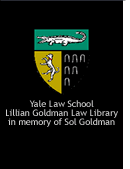
 |
 |
- produced by Jude Geiger This presentation examines the role of the media under apartheid. The media in South Africa was multidimensional, to say the least. This video begins with a montage of broadcast coverage from the apartheid era, which demonstrates the absurdity of some coverage of the turmoil in that nation and also illustrates the culture of fear that marked that era. Control of the media was an essential element for the maintenance of the apartheid state. The video then proceeds to investigate why the majority of journalists colluded with and supported the racist government of South Africa. Mainstream South African media establishments were segregated and denied equal opportunity to black South Africans. The press felt political pressure to follow the National Party line and obey laws which restricted open dialogue. Also, the mainstream media focused on political conflict between the major white parties, rather than liberationist movements. The legal situation in South Africa limited access to stories. Segregation also prevented journalists from obtaining access to news sources. Next, the presentation focuses on media collusion with the government of South Africa. The Truth and Reconciliation Commission found that members of the media colluded with the government and presented a false picture of the resistance. Newspaper publisher’s concerns with the bottom line and making a profit prevented them from fully articulating a message that opposed apartheid. Part of this problem occurred because the mainstream media endorsed a gradual end to apartheid, which led to conflict with liberationist movements. Neil Jacobson from The Times apologizes for his newspapers’ involvement in apartheid and support of the Nationalist Party government. The presentation continues with an examination of the liberation press under apartheid. The term, liberation press refers to the media outlets that were designed to oppose the institutions of apartheid, and distinguishes these primarily black administered outlets from the mainstream, liberal, press. The liberation media had few resources but used them to criticize and challenge apartheid. The mainstream media either demonized the independent media or tried to drive them out of business. In contrast to the liberation press, many members of the media were working with the government covertly. Government agents infiltrated the South African media in order to use their status as journalists to gain valuable information on the African National Congress and other groups and individuals that opposed apartheid. Former media spies John Horak and Craig Kotze explain their participation in the media as secret agents whose true credentials were not known by the general public. The infusion of media spies was done not only to obtain information, but also to influence the content of various media outlets and ensure a message that supported the Nationalist Party government. The video ends with a question as to whether the South African government currently suppresses the media and if the same system exists today before providing some concluding statements. The South African media at times criticized the racist policies of the South African government but also supported some government policies, either overtly or tacitly. |
|
Biography Jude Geiger Jude is a member of the Yale Law School class of 2006. He has worked as a reporter and columnist for both the Daily Vidette of Normal, IL and the Daily Times of Ottawa, IL. He has also worked as a legal advocate for the National Coalition of Anti-Violence Projects at both the Center on Halsted of Chicago, IL and the Connecticut Women’s Education and Legal Fund of Hartford, CT. He received his Bachelor’s of Science degree from Illinois State University in 2000 with majors in mass communication, political science, and social sciences. While an undergraduate at ISU, he was a member of the twice national championship Individual Events public speaking team. He received a master’s degree and graduate certificate in Politics and Government and Women’s Studies in 2003 from ISU and wrote his masters thesis, entitled “The Semiotics of War, An Analysis of the Events of September 11” about the media coverage immediately following the attacks on that day. While at Yale he has been an article editor for the Yale Journal of Law and Feminism and a teacher of criminal law for the New Haven-Yale Saturday school. |
|
| Return to Multimedia Page | List of Websites | Bibliography |
|